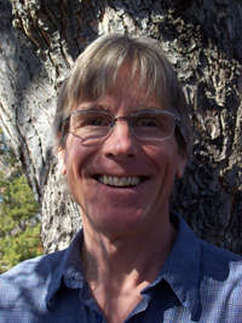|
Jay Udall, professor and poet-in-residence at Nicholls State University, loves writing poetry. Poetry and song lyrics are close cousins in the world of writing, so I figured Professor Udall would be the perfect person to discuss themes and inspiration. Below, you’ll find a brief history of Udall’s life, and a general discussion about the joy of writing. All of the information is presented from the perspective of Udall himself. Beginnings I grew up in northern Virginia, outside of Washington, DC. That area was quite rural back then, and even as a kid, I was allowed to wander freely in the woods and down by the river. We had lots of animals, too— the usual cats and dogs, but also snakes, rats, gerbils, guinea pigs, parrots, a pig, and even a bunch of abandoned baby squirrels that we raised. My poetry has been strongly informed by these experiences— I'm often drawn to the natural world and animals in my writing. My newest book, for example, has a section titled "Blessings of the Beasts" that is entirely devoted to animals. "Blessing of the Beast," by Jay Udall. Let it rise from the windowless houses in which chickens sit their entire brief lives in darkness, wing to wing, breasts bred so heavy they struggle to walk, stop trying. Let it lift them into confused light with the matted grasses and blackened leaves below the field of ice where I blow on cold coals in a pit of ash and bone. Let it come from the calcium veins branching under graveyards, be root-sucked into breathing green, feed, flower this brain to see through the city’s magic mirrors the earth snake’s eyes peering in and out. Not the immaculate Mind purified of death, but the blessing of skin, scale, fur and feather, breath and pulse, the old blood, the code kept and spoken from the first cell saying trilobite, chameleon, gray wolf, the chimera we name the self, chatter, warble, growl, shriek, moan. For the sparks and flashes, skull skies, temples of piss and shit, ancestral spirits, gods crawling, clawing, tunneling, flying, tasting clouds, oceans, soils, sun in seeds, muscles, pulps, leaves, saps, oils, juices, the tongue circling the tender center, mouth enfolding, stroking the veined stalk, for the burst, thrust, outrush of fire and space becoming, and the counter-pull, the gathering attraction, slow accretion of matter remembering in this trembling, this singing, this dying, this dreaming meat. Writing I didn't start writing poetry seriously until I was in my early 30s, but I wrote a good many song lyrics before that. I think I really came to poetry through music. I was the youngest of six kids and grew up listening to artists like Bob Dylan, the Beatles, and Neil Young. They often used language in a poetic way that strongly appealed to me. I still write songs to this day. Video courtesy of YouTube. I'm pretty much writing all the time— I carry one or two poems in my head and work on them as I go. I try to be always on the lookout for some image or situation that could serve as the seed for the next line or poem. I tend not to start with themes or abstract ideas, but with specifics. I want my poems to appeal to the whole person, including the body and the senses, not just the intellect. There are certain topics I find myself drawn back to again and again, such as our relationships to other animals and the environment; connections between science and spirituality; the causes and consequences of violence; and questions of identity, to name a few. Teaching I came to Louisiana because my current position allowed me to teach more poetry writing than other possible positions. Since coming here, I've written quite a bit about the state— its plants, animals, history, and social dynamics, especially poverty and racism. Nicholls State University. © Misty Leigh McElroy/Nicholls State University I love to learn. More than anything else, I think that's why I gravitated to education as a career. Along the way, I discovered that I love helping others to learn. It's such a positive focus, for the most part. What could be better? I would say that my teaching and writing feed each other. I teach writing as a process of exploration, discovery, and clarification, which is the same way I write. What I enjoy most in teaching is seeing those moments when students break through— when you can see them come into possession of their own power as thinkers and writers. To be a part of that, to help the process along, is as good as it gets. Legacy I think of my own work as being in conversation with the history and tradition of poetry, but also with the current moment. I don't like the idea of setting past and present against each other. To me, it's a single river. The Mississippi River, New Orleans. Mark Schleifstein, NOLA.com | The Times-Picayune There are many, many rooms in the house of contemporary poetry. Poets are exploring so many different styles and modes, and there is such a wide range of voices now— we're hearing from people we haven't heard from much before— people of every ethnicity, sexual orientation, and so forth. The field is wide open and that's a wonderful thing.
If I could speak to myself when I first started writing, I would say, "Keep doing what you're doing." My writing has taken me to many unforeseen places. I didn't know what I was getting into when I started out. Making a go of it as an artist in America is always tough, and poetry is a demanding practice if you give yourself over to it. At times you may not know if you're doing it well, or if you're heading in the right direction, but you "learn by going where you have to go," as the poet Theodore Roethke once said. I've met some amazing people and had some amazing experiences by pursuing poetry. That's all you can ask for.
0 Comments
Leave a Reply. |
|



